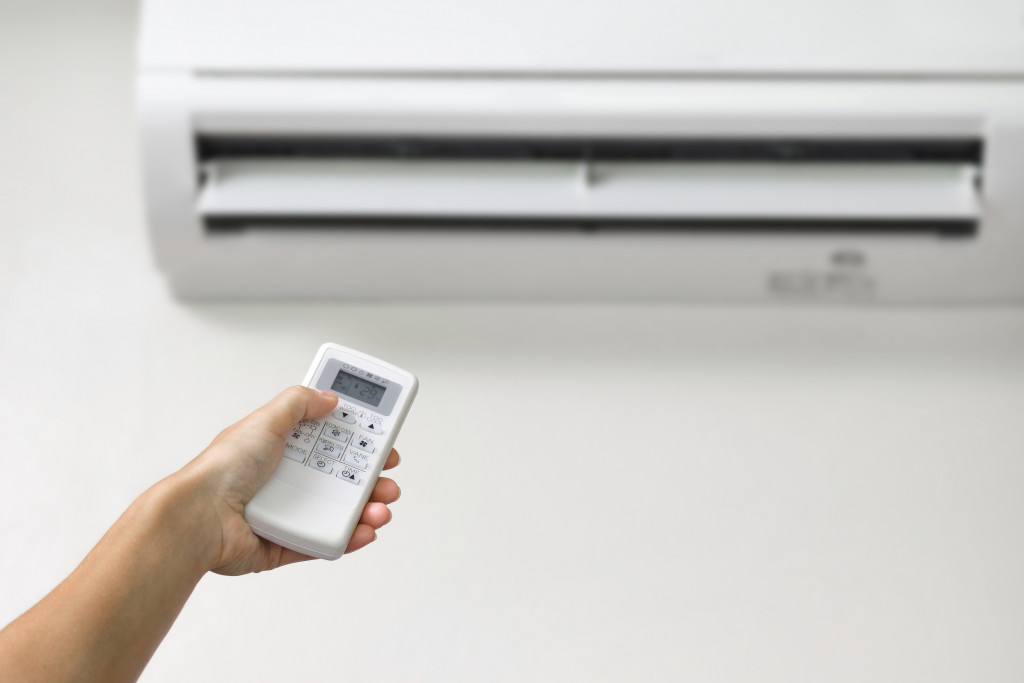Living in a healthy home is important. And that health includes your exteriors and interiors. You might use wood fences to promote social distancing to your kids, but what can you do when you are indoors and breathing the same air?
One of the most important components of a healthy home is good indoor air quality. The air can carry allergens and irritants that might compromise your health and well-being. Therefore, it is important to invest in making sure that you have good indoor air quality at all times.
A single person takes about 20,000 breaths of air every day. Most people spend 90% of their time indoors, which means that it is important to consider indoor air quality when talking about health outcomes. Furthermore, the COVID-19 pandemic has forced people to spend more time indoors to reduce exposure to the novel coronavirus. The more time you spend indoors, the more you should think about indoor air quality. What is it, and how does it affect your health? Let us find out.
Indoor Air Quality: What it is and what it implies
Air quality is affected by a lot of different things. Air pollution is caused by different gasses and particles. Most people believe that air pollution only happens outdoors. However, air pollution can also be a problem indoors.
Every time you open a door or a window, you bring outdoor air inside your home. Aside from the outdoor air you bring into your home; you also bring in smoke and pollen. As much as you try to keep your doors and windows closed, outdoor air has a way of sneaking into the crevices of your home. Leaks around the windows and doors in your house can let polluted outdoor air in inconspicuously. This negatively affects indoor air quality. Compromised indoor air quality can have negative impacts on your health. What should you do now?
Tiny Particles, Huge Impact
The air you breathe at home is filled with tiny particles that could be anything from allergens to dust to mold. Spraying air fresheners can help, but this solution is not sustainable. It only helps improve the scent of the air around you and superficially removes pollutants in the air. However, you can’t keep spraying air fresheners inside your home all the time.
Almost everything inside your home contributes to indoor air pollution. The humidity, burning candles and fires, furnaces, and even cooking can compromise the air quality in your home. Newly installed furniture and floors can also affect indoor air quality because these items release chemicals that could harm your health. Therefore, you must find a solution or solutions that will help you address all the problems that contribute to compromising indoor air quality.

Sustainable Solutions
If you consider all the factors that contribute to compromised indoor air quality, you might feel overwhelmed by the fact that there seems to be no escape from air pollution even when you are indoors. You might think that the more you breathe in the air, the more you are compromising your health. But what choice do you have? It would be best if you breathed to live. The best thing you can do is find ways to keep your indoor air clean and fresh.
To keep your indoor air clean and fresh, you need to establish regular cleaning routines. This means that you have to clean your home regularly to remove dust particles that could cause allergies. You also need to monitor your home’s humidity levels and make an effort to keep most of your windows closed, especially during peak pollen seasons.
It is also effective to remove strong scents in your home. Usually, the sources of these strong scents are candles and harsh chemicals such as bleach and other cleaning chemicals. You can also invest in an air cleaning and duct cleaning service to make sure that the air that comes in and out of your home is fresh and clean at all times. The more you invest in your home’s indoor air quality, the better your health outcomes will be.
Clean and Green
If you want to try a more environment-friendly solution to your indoor air quality problem, you can try growing houseplants. House plants help keep indoor air fresh and clean. However, you need to make sure that you prevent mold from growing on your plants since mold affects indoor air quality. You can do this by planting only in sterile soil, watering the plants only when the soil is dry, giving the plants more sunlight, and trimming dead leaves regularly.
Saving the Air
There are many ways to manage and control indoor air pollution. The important thing to remember is that you must prioritize indoor air quality because it can affect your health and well-being. Although it might be challenging to follow all the suggestions mentioned in this article, you must consider investing in keeping your indoor air clean and fresh at all times. This way, you are investing in better health outcomes for you and your family.

